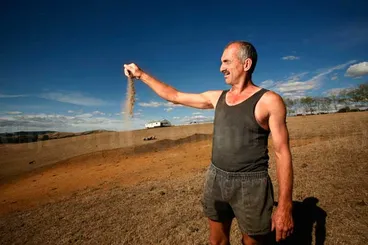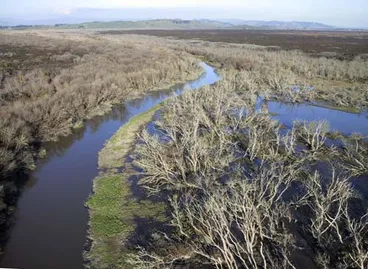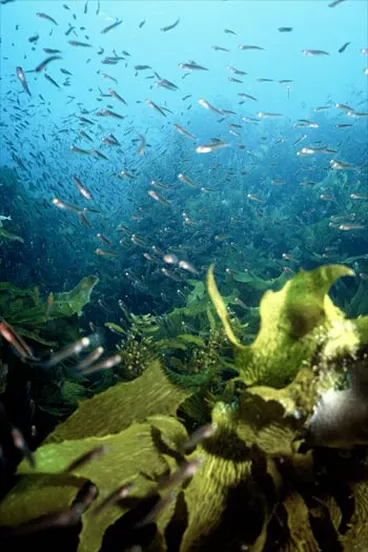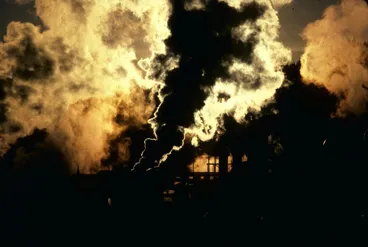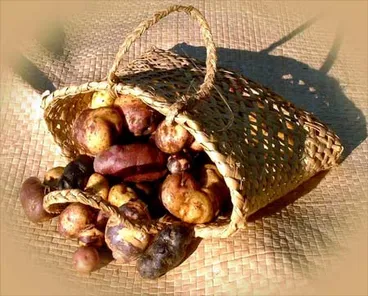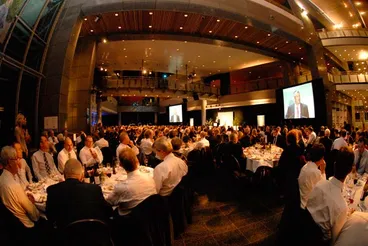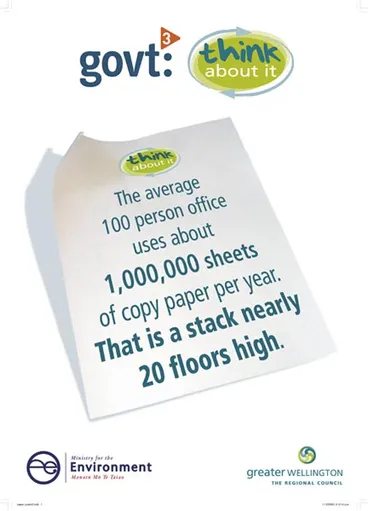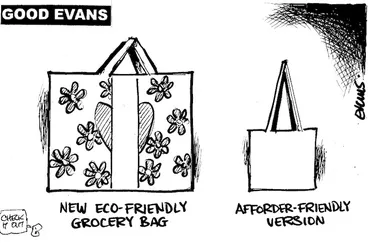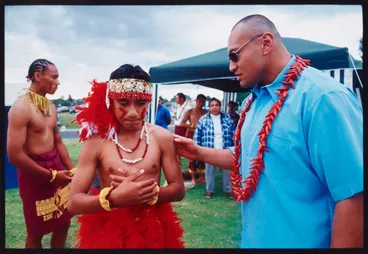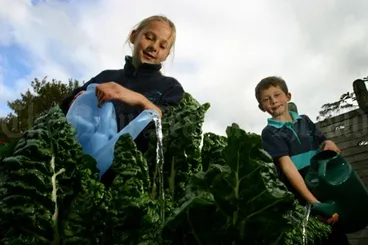Sustainability: Taking Action
A DigitalNZ Story by National Library Services to Schools
This story provides resources for teachers and students exploring taking action around sustainability at home, at school, and in their communities.
Students around Aotearoa took part in the School Strike for Climate Action campaign in March 2019.
Museum of New Zealand Te Papa Tongarewa
INTRODUCTION
For most schools, their student inquiry cycle will have a focus on exploring ways to take action. This story provides links to resources and exemplars for teachers and students in both primary and secondary schools around how to take direct action on sustainability issues.
These resources support the other stories in this topic, and are grouped into the same three areas:
- Environmental Sustainability
- Economic Sustainability
- Social & Cultural Sustainability
Visit Te Papa's Community Stories: Taking action for nature page to see examples of what's happening in communities nationwide.
ENVIRONMENTAL SUSTAINABILITY: CLEAN WATER
Choose clean water — help us make sure the government deliver on its promises to protect Aotearoa New Zealand’s water & clean up our waterways in 2020.
Counting Kākahi — scientist Hannah Rainforth investigated kākahi in the Whanganui River to find whether the evidence supports claims by local kaumātua that kākahi have nearly disappeared.
LittaTrap — a New Zealand company has come up with an innovative way to capture rubbish before it enters urban drainage systems and ends up in our streams, rivers and oceans.
Talking to the river — an article about a farmer and a group of engineering and computing students from Victoria University of Wellington who collaborate to gather data about river pollution and publicise it.
Testing the waters — scientists are testing the health of the Maitai River. Find out what data they collect and what can be done to make our rivers cleaner and healthier for everyone.
The fish highway — an article about scientists monitoring fish in the pipes that run under Wellington streets.
Droughts are becoming more common as climate change worsens.
Manatū Taonga, the Ministry for Culture and Heritage
ENVIRONMENTAL SUSTAINABILITY: CLIMATE CHANGE
Building for the future — scientists and the Council of Matai take action to reduce the effects of climate change in Samoa.
Climate action — the scientific consensus is that the Earth’s climate is warming. What we do about this is up to all of us.
Climate change - a wicked problem for classroom inquiry — a resource for assisting students to tackle the problem of climate change and how to address it.
Climate Change: our biggest challenge — an article explaining climate change and what we can do about it.
Climate change-focused school opens in Taranaki — a groundbreaking school that puts a green ethos at the centre of its learning is celebrated its opening in Taranaki in February 2020.
Global action — this detailed article looks at the science and politics of climate change.
Listening to the land — an article about collecting and recording mātauranga from iwi and hapū about plants and animals in Aotearoa and how this can then be used to plan for the change.
Rising seas — scientists investigate what is happening and use the evidence to suggest how we might adapt to the changes.
As their importance has become better understood, more wetland ecosystems are being preserved or restored.
Manatū Taonga, the Ministry for Culture and Heritage
ENVIRONMENTAL SUSTAINABILITY: LAND ECOSYSTEMS
Building for the future— scientists and the Council of Matai take action to reduce the effects of climate change in Samoa.
Bringing back the birdsong — students in the Kids Restore the Kepler project are working with the Department of Conservation and the Fiordland Conservation Trust to reduce the number of predators living in the area.
Designed for good — follows the process of developing an effective and humane trap to reduce pest populations.
Enviroschools: creating change — when tamariki/students connect with their place and its people, and then plan, design and take action, they are creating change.
Kauri dieback — combating the spread of this threat requires expertise from both Western science and mātauranga Māori and calls on everyone to get involved.
Kimihia kermit — this article describes how Ngāti Mutunga and students from Uruti, Mimi, and Urenui schools are working with scientists to find out which frogs are still living in their rohe.
Litterati — Litterati is an online citizen science (OCS) project that allows participants to photograph, upload and tag litter in their area.
Restoration — thousands of people up and down the country volunteer their time to plant thousands of native trees and shrubs.
The Possum problem — an article about New Zealand's possum problem and suggestions for ways to help stop them from destroying our forests.
The war on weeds — the article shows how students can use digital technology to become citizen scientists and act locally on a national issue.
Protecting marine ecosystems and their biodiversity is crucial to the health and sustainability of our oceans.
Manatū Taonga, the Ministry for Culture and Heritage
ENVIRONMENTAL SUSTAINABILITY: MARINE ECOSYSTEMS
After the spill — if an oil spill occurred on your local beach, how would it affect you now and in the future?
Down the drain — students at Wilford School in Petone were shocked to discover the amount of rubbish finding its way onto their local beach.
'It's not a quick fix to revive these ecosystems' — a petition to ban bottom trawling on underwater mountains has amassed 20,000 signatures in one week.
Meet the Locals: Whangarei Harbour Marine Reserve — meet some of the students from Kamo High School at the Whangarei Harbour Marine Reserve. They were the world's first high school students to successfully apply for a marine reserve.
Northland students' sustainable business — local high school students have started a business removing a pest from the rocks and converting it into a potent organic fertiliser.
Oceans — a range of initiatives for protecting our oceans and it's wildlife from Forest & Bird.
Plastic Free July — you’re a beginner looking for a few single-use plastics to avoid, or someone well on their way to a plastic free life, we have ideas to inspire you at home, work, school, and within the community.
Sea Cleaners— the vision of Sea Cleaners, is to preserve New Zealand’s Coastline for the benefit of the marine life and for the enjoyment of all users.
Sea science — this article describes a citizen science project carried out by three schools on Aotea Great Barrier Island.
Seaweek resources — an extensive list of resources from the Science Learning Hub for learning and taking action around marine ecosystems.
The plastic-free challenge — when Room 5 students at Motueka South School saw a video about the Great Pacific Garbage Patch, they were inspired to take action.
Under the sea — students from local high schools are partnering with divers, biologists, engineers, fishers, and local iwi to discover and record the plants and animals that make the reef their home.
Young Ocean Explorers — connecting hearts and minds with the importance of enjoying and caring for our oceans and tools to make a better future.
Our geothermal fields in the central North Island are an important source of energy.
Museum of New Zealand Te Papa Tongarewa
ENVIRONMENTAL SUSTAINABILITY: SUSTAINABLE ENERGY
Driving us into the future — read about the development of electric cars and see how the technology they use contrasts with that used by fuel-powered cars.
Lighting the way with solar energy — when Tokelau decided to switch to renewable energy, they thought critically about all the options.
Teen project could power teachers' cars — a student investigation into generating sustainable power at a Taranaki high school may soon have teachers lining up to charge their electric vehicles at the school.
Power from the Sun — this report describes the use of solar panels to make electricity and includes an example of a school that has been using solar power since 2008.
Solar power in Tokelau — this report highlights the world-first achievement of Tokelau in using renewable energy sources (solar energy and coconut oil) for all its electricity.
Massey University is exploring the use of the Maramataka (Māori lunar calendar) as a way to produce food sustainably.
Manatū Taonga, the Ministry for Culture and Heritage
ENVIRONMENTAL SUSTAINABILITY: SUSTAINABLE FOOD PRODUCTION
Garden with science — to grow healthy plants, gardeners use scientific knowledge and skills, including observing the world around them and experimenting to find evidence to support their ideas.
Gardening in the living room — the students of Balaclava School find out how the environment inside their new greenhouse helps plants grow during the cold Dunedin winters and investigate which vegetables grow best inside and outside its unique climate.
New Zealand Farm the future of sustainable agriculture — a farm in Hawke's Bay leads the way in sustainable practices.
Our gifted garden — this article recounts how students from Raumati South School, an Enviroschool, entered an environmentally sustainable garden in the Ellerslie International Flower Show.
Sustainable food production — some specific impacts of food production and a range of solutions.
ECONOMIC SUSTAINABILITY
Business opportunities
Manatū Taonga, the Ministry for Culture and Heritage
ECONOMIC SUSTAINABILITY: ACTIONS BY SCHOOLS
Aqua republica — this game from Science Learning Hub helps students to balance the needs of the population with those of the environment.
Learning in a living classroom — students get the opportunity to be immersed in real environmental situations to develop skills of sustainability and restoration.
Sustainability at Rangi— sustainability initiatives by Rangi Ruru school, an Enviroschool, a Fairtrade School, a 2019 KNZB Sustainable Schools Award finalist and a finalist in the New Zealand Sustainable Business Network Awards.
Symbol of the times — students from St John’s College in Hastings collaborate remotely during the COVID-19 lockdown to develop PEAR-1, a low-cost ventilator for $40.
Watt about the weather — New Plymouth Girls’ High School investigates sustainable energy generation for use in electric vehicles by monitoring various renewable energy generators at school.
Govt3 poster
Manatū Taonga, the Ministry for Culture and Heritage
ECONOMIC SUSTAINABILITY: ACTIONS BY COMMUNITIES
Building a sustainable economy — actions by Forest & Bird to rebuild a sustainable economy post-COVID-19.
11 amazing things you made possible in 2019 — achievements of sustainable communities around the world.
Growing a sustainable economy – methods used in communities to develop key aspects of local economies on a sustainable basis.
Kibbutz Lotan — examples of how communities in Israel have combined economic and environmental factors for sustainability.
Solar power in Tokelau — Tokelau uses solar energy and coconut oil for its growing energy needs.
Community economic development — local community programmes in support of long-term community sustainability.
'New eco-friendly grocery bag'. 'Afforder-friendly version'. 1 May, 2008
Alexander Turnbull Library
ECONOMIC SUSTAINABILITY: ACTIONS BY BUSINESS
Allbirds - Our Sustainability Approach — read about New Zealand company Allbirds' plan to eliminate their products’ carbon footprint.
Big changes to protect the planet— Amazon's commitment to building a sustainable business for customers and the planet.
Developing a plan of action for business sustainability — sustainability pioneer Mike Barry Head of Sustainable Business at Marks and Spencer on actions for business sustainability.
New Zealand sustainability landscape — interactive graphic to learn the key sustainability initiatives adopted by organisations in New Zealand.
Tools & resources — from Sustainable Business Network to help companies on their sustainable journey.
Sustainable leadership — priority areas for Sustainable Leadership programme from BusinessNZ.
Tips for becoming a sustainable small business— Ministry for the Environment on simple actions to use less energy and water and produce less waste and emissions.
Work programmes for Sustainable Development Goals (SDGs) — World Business Council for Sustainable Development targets 6 programmes to ensure more sustainable companies are successful.
ECONOMIC SUSTAINABILITY: ACTIONS BY GOVERNMENT
Exploring Brazil’s economy and culture — ten students from Wellington School of Business and Government visit Brazil to explore sustainable development in this region.
Putting sustainability at the heart of economic policies and practices — partnership for Action on Green Economy (PAGE) supports nations and regions to implement green economic policies and strategies.
The road to Rio+20 — issue from The United Nations Conference on Trade and Development (UNCTD) focuses on sustainable development strategies of governments.
Sustainable development — Ministry for the Environment takes the lead on building connections between the environment and economy and environment and society.
Sustainable global economy — the United Nations identifies 4 key areas for governments to act on to steer the world towards a sustainable future.
Auckland Secondary Schools Maori and Pacific Islands Cultural Festival, Manukau City. Samoan performer, De La Salle College
Museum of New Zealand Te Papa Tongarewa
School vegetables
Manatū Taonga, the Ministry for Culture and Heritage
SOCIAL AND CULTURAL SUSTAINABILITY
An immersive experience in language and culture — 14 students from Bucklands Beach Intermediate explored Shanghai, attended school and experienced everyday Chinese family life in the homes of fellow students, who had visited them in Auckland one month prior.
Designing a culturally responsive curriculum — cultural diversity is one of eight guiding principles in the New Zealand Curriculum.
Effective practices: what works in different settings — building authentic and respectful relationships with parents and whānau was the key to understanding the learner’s cultural and family background, and critical for the learner’s success.
Engaging Pasifika families — Owairaka School builds a fale.
Inclusive classroom culture — an inclusive classroom culture values and recognises the contributions of all students, their families/whānau, and communities.
Inclusive education and Māori communities in Aotearoa New Zealand — teaching practices should be responsive to the cultural identities of students.
Office of Ethnic Communities— Ondre Hapuku-Lambert’s speech about looking to the past to face the future has won the Office of Ethnic Communities Tohu Whetumatarau Award for Vision.
North East Valley School – a new environment, a new outlook — Principal John McKenzie, talks about their curriculum development day that was held at their local marae.
Responding to cultural diversity — diversity in Auckland's schools.
Te ‘epetoma o te reo Māori Kūki | Preserving language and culture — a Porirua kindergarten is on a mission to preserve the language and culture of three Pacific Island nations.
Wharehoka Wano — shares his ideas about the importance and meaning of the Treaty of Waitangi curriculum principle.
This story was curated and compiled by Te Puna Mātauranga o Aotearoa | National Library of New Zealand, Services to Schools staff, April 2020.
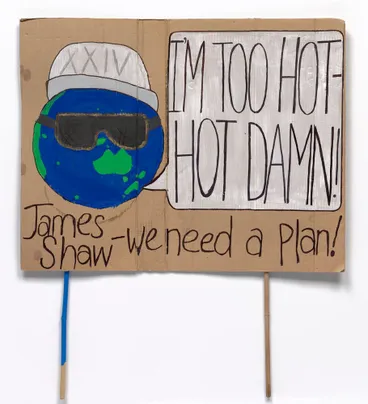
![Postcard. Wanganui River. Copyright T Pringle, Wellington, N.Z. 114. Printed in Germany. 96053 [1904-1914]. Image: Postcard. Wanganui River. Copyright T Pringle, Wellington, N.Z. 114. Printed in Germany. 96053 [1904-1914].](https://images.digitalnz.org/gbwMrT-PiIi_kRzx6feh-pWOYD0=/368x0/https%3A%2F%2Flive.staticflickr.com%2F5820%2F21473363566_a858be466f_z.jpg)
